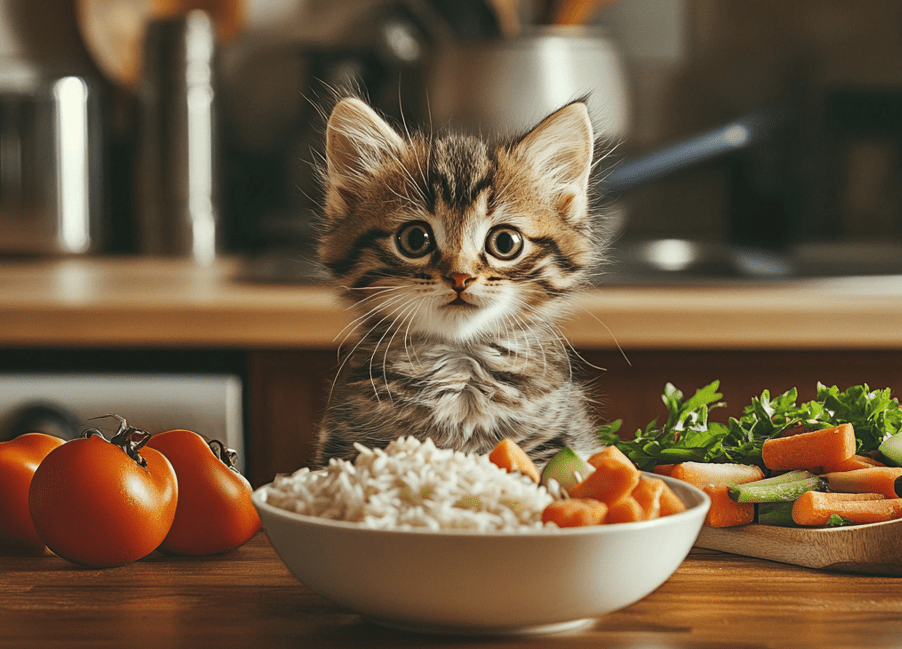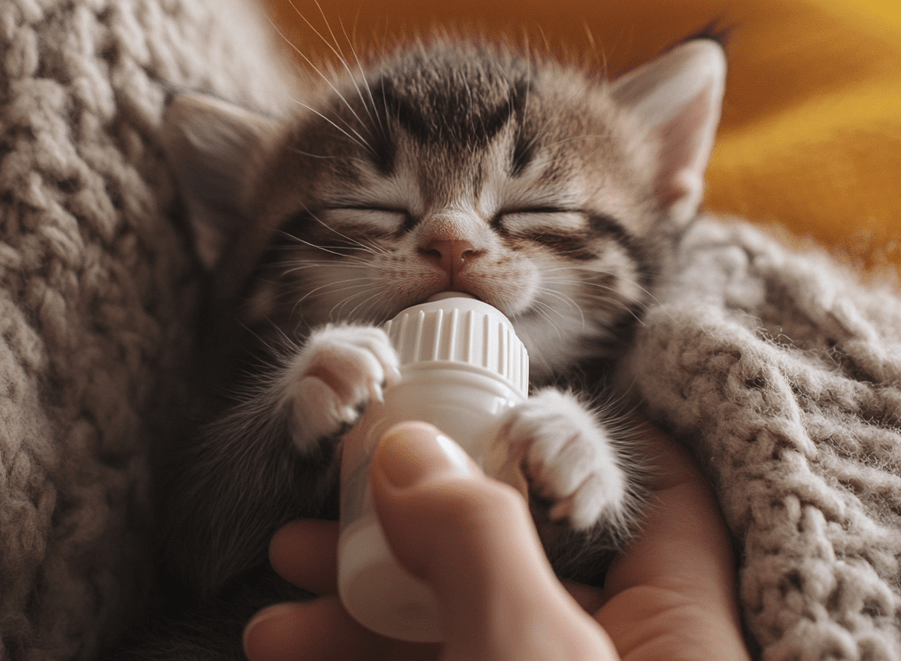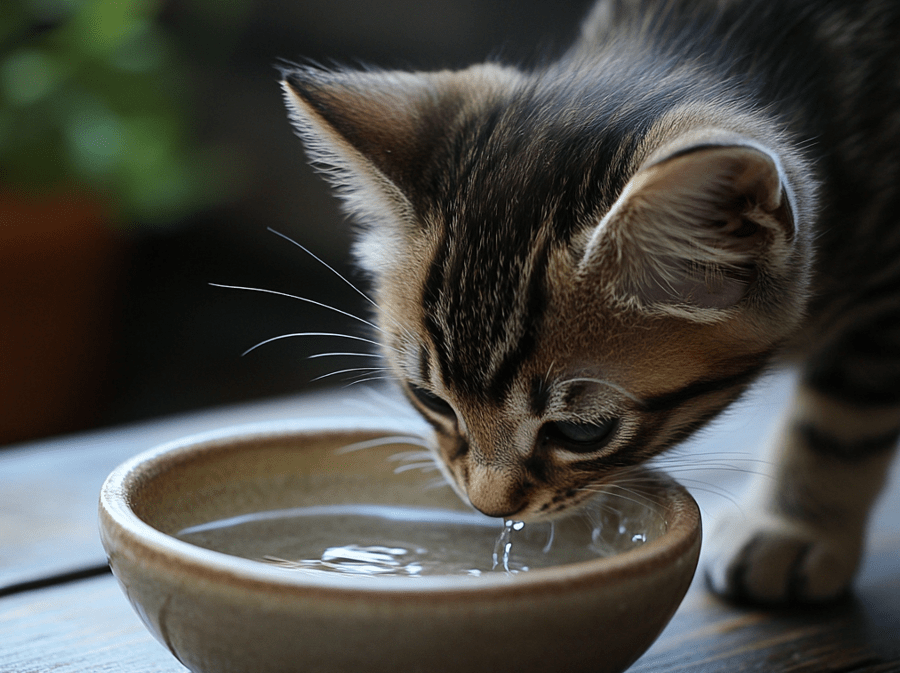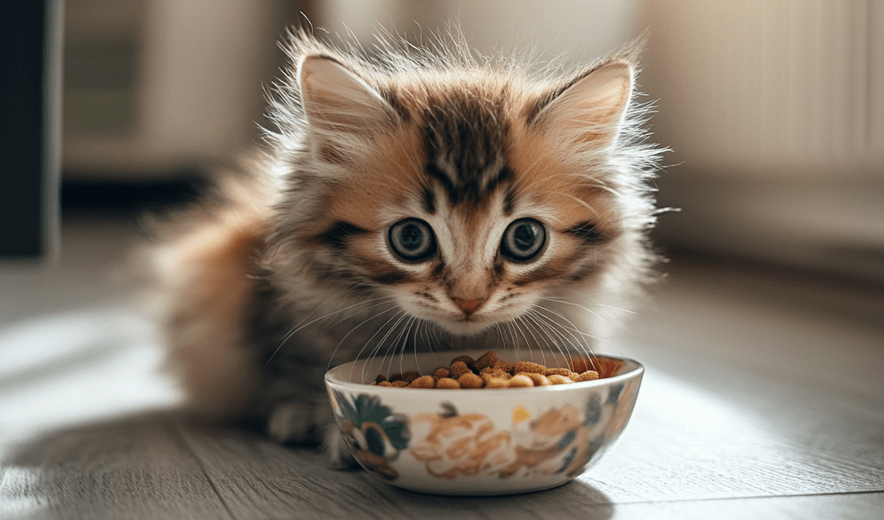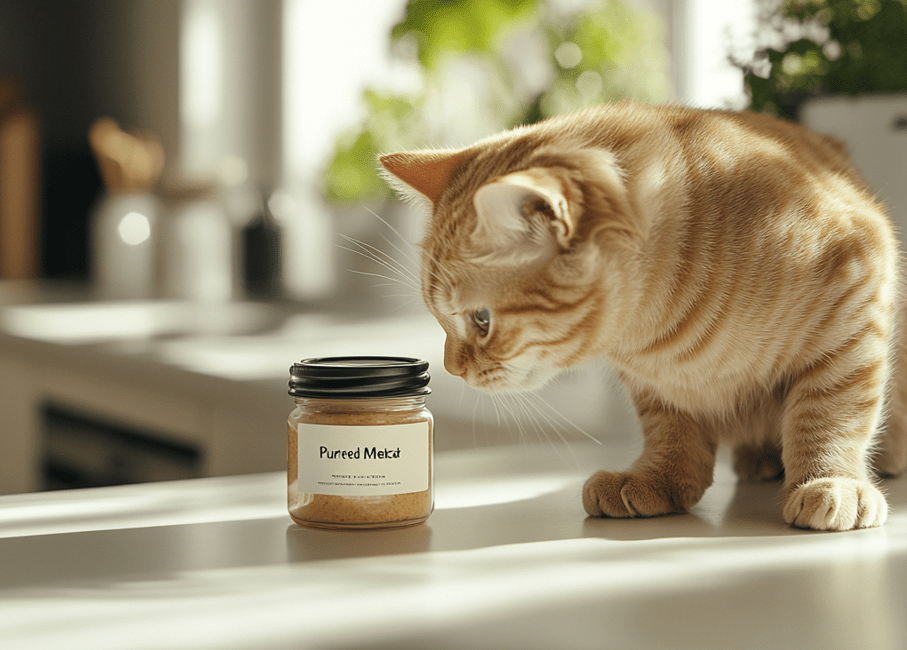
Some cat owners think of their pets as living forever young, little fur babies—but does this mean you should feed your cats some actual baby food too? Some varieties of baby food may be tempting, but not all are safe or appropriate for cats to eat. Below you will find the advantages and pitfalls every pet needs to watch to stay healthy.
People feed only occasional treats, but some are safe for your cats to eat. Baby food with pureed meat: This is often an attractive option to offer your cat in need of a little extra nutrition or socialization time and contains no grains or vegetables. They are generally free of additives and easy on the gut. While some hairball remedies for cats are safe, that is not true universally; there still exist ingredients in many of them which can be dangerous to administer. Keep reading to find out which ones are safe, and what ingredients you need to steer clear of.
To watch the summary of this article, just watch this video-
Is Baby Food Safe for Cats?
This is in the form of pureed meat, fruits and vegetables which are made into baby food. Some types are good for cats; others contain items that could be harmful. Before you even offer baby food to your cat be sure that it is free of the following:
Allium Vegetables (Onions, garlic)
Meat baby food is sometimes flavored with onion or garlic—both toxic to cats. The Allium plants (i.e., garlic and onions) cause hemolysis with the breakdown of red blood cells that can result in anemia. Exposure to these veggies for an extended period of time can also lead to chronic kidney disease (CKD) which may be hereditary in nature in several breeds like Persians, Abyssinian and Siamese cats.
Citrus Fruits:
Meat baby food is sometimes flavored with onion or garlic—both toxic to cats. The Allium plants (i.e., garlic and onions) cause hemolysis with the breakdown of red blood cells that can result in anemia. Exposure to these veggies for an extended period of time can also lead to chronic kidney disease (CKD) which may be hereditary in nature in several breeds like Persians, Abyssinian and Siamese cats.
Grapes:
While veterinarians are not completely sure, they suspect that something in grapes like tartaric acid or fungal toxin causes toxicosis to cats. Grape-infested baby food in cats causes sudden kidney disease.
Chocolate:
Chocolate or cocoa with baby food is especially dangerous as it has caffeine. Caffeine can over stimulate the central nervous system in a cat and cause heart disturbances that are sometimes fatal. Symptoms of poisoning include vomiting, diarrhea, irregular heartbeat, tremors and seizures.
Can Baby Cats Eat Baby Food?
Kittens that are weaning can eat baby food, as long as it is plain and does not include any dangerous ingredients like poisonous fruits or vegetables or caffeine. Of course, kittens who still nurse should not be eating solid food. Pureed meat is soft, but it would not be the best option for very young kittens that are too little to eat on their own.
Kittens the first 3–4 weeks can only consume mothers milk or kitten replacer (like KMR) if they are taken from the mother. KMR is gentle on their sensitive digestive systems and a life-saver to ensure healthy development. You also should not feed these wildlife babies cow or plant-based milk (soy, almond) as it can severely irritate their bowels which will result in deadly diarrhea.
After fully opening the eyes of a kitten and growing its first teeth, you can gradually make your diet more diverse. In a pinch, you can offer baby food as an occasional treat; however their main meals should come from kittens or high-quality wet food.
Can Older Cats Eat Baby Food?
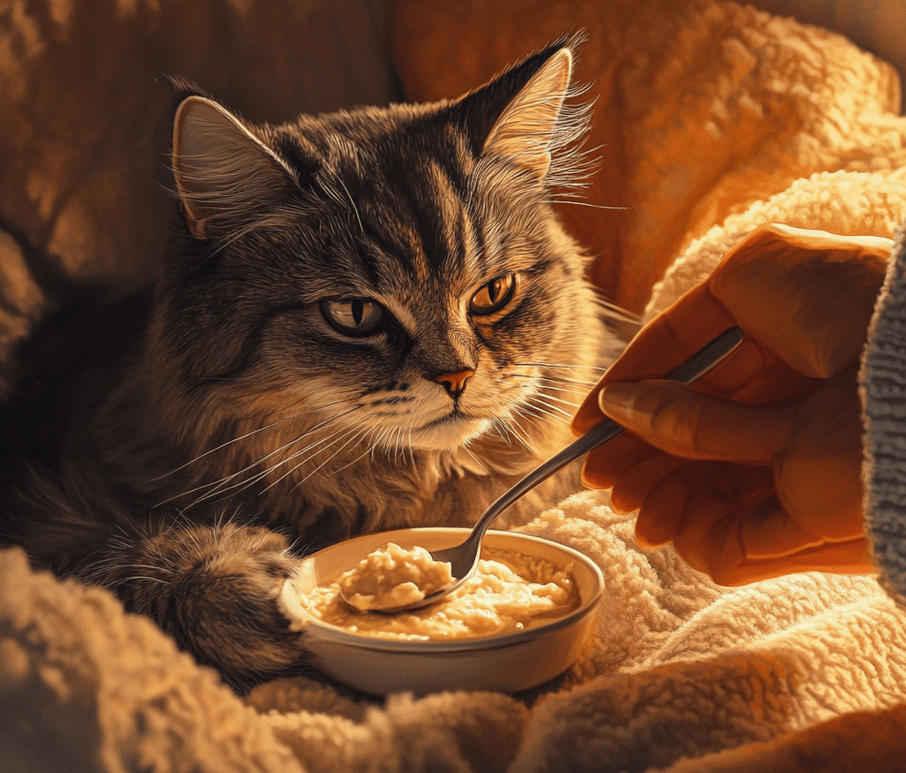
Older cats may have special requirements for their diet because they are more prone to certain diseases due to old age.
1.Gastrointestinal discomfort
2.Loss of appetite
3.Dental problems
Older cats with dental problems love the soft texture, and baby food is very appetizing for most! These purees are also efficiently digestible which may increase his or her desire for eating after tasting this meal, preferably when the baby eats less.
While baby food can be beneficial, it should never replace your cat’s regular diet as they offer little-no nutritional value in comparison. If your senior cat has trouble chewing you can add warm water or a mild unseasoned broth to help soften their food.
How Often Can I Feed Baby Food to Kittens?
So yes, the baby food is not bad unless of course it contains poisonous additives in which case offering them once or twice a week as treats should be safe. Supplementing it in between can also keep your cat from getting bored with its normal food. Baby food should be limited and it is important to consider the calorie intake (approximately 40 kcal/kg per day for indoor cats) so your cat can maintain a healthy weight.
Only a small amount — even as little half of a teaspoon (2-3 g). If your cat will not take it from a bowl, you can spoon feed her small amounts of puree or place some on the tip of your finger for them to lick.
How to Feed Baby Food for a Sick Cat
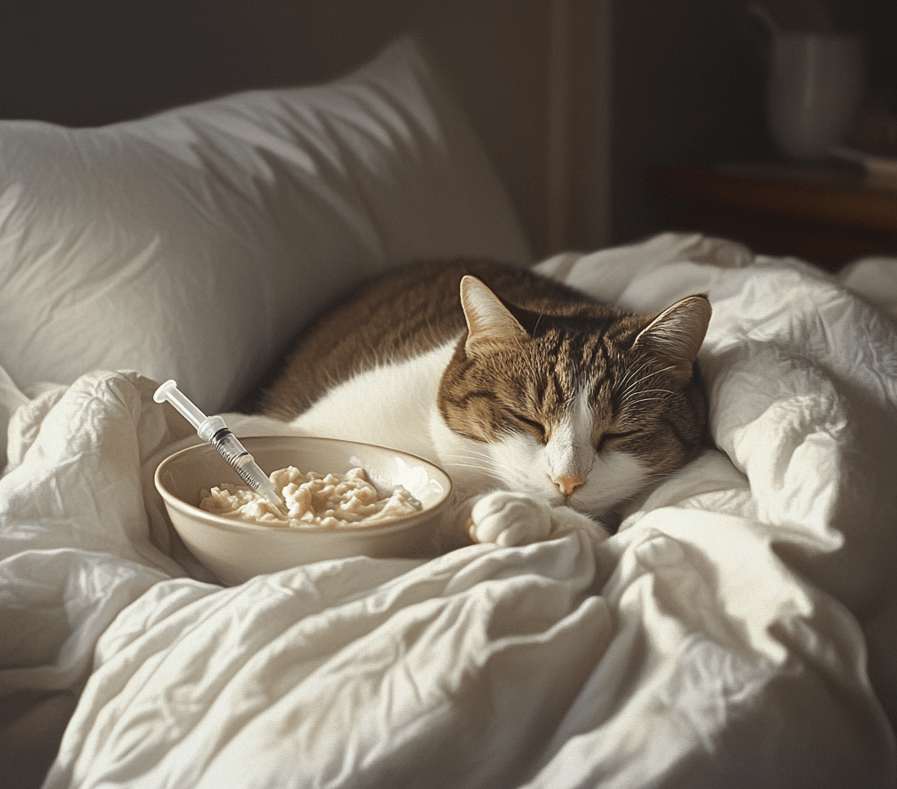
Baby food may be particularly helpful for a cat that is recuperating from sickness or infection. When they are sick, cats rarely do not eat and baby food can be a quick substitute until you get to their usual diet.
The stuff that usually goes into baby food for infants is already mild and gentle to the baby’s stomach. In the UK, more than 20% of baby food is organic and free from artificial additives that can irritate your cat’s system. But this type of food should be considered a short-term measure; and when your cat starts to recover, they need to go back eating their usual good quality canned or dry complete diet cat food.
Best Baby Food for Cats
The best baby food for cats is unseasoned and meat-based since they are obligate carnivores. For those using store bought baby food, read labels carefully to be sure no spices or herbs are added because these are toxic. In the same sense, avoid things like starchy vegetables or rice — high carb ingredients that really have no place in a cat’s diet and may give your cat an upset stomach.
Since cats lack the necessary enzymes to break down carbohydrates efficiently, it is ideal for them not to consume more than 3% of their daily diet in carbs. They eat raw meat, not baby food with grains; an occasional tablespoon of the stuff won’t hurt them — but a few serving for even just one day can cause some ‘digestive upsets’.
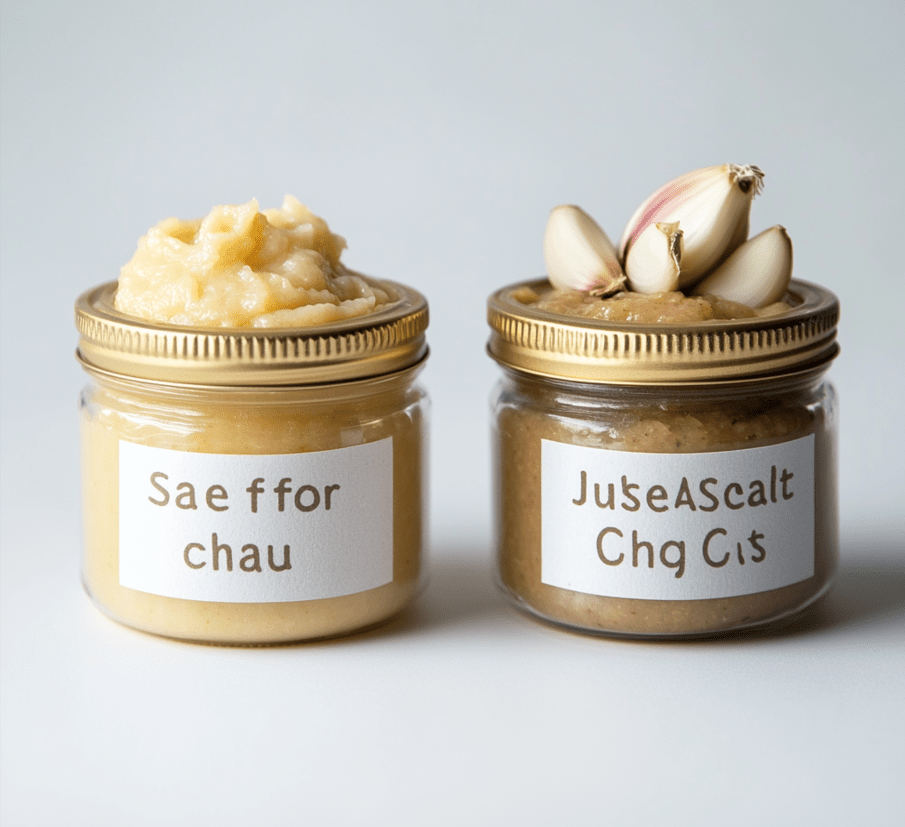
The only way to ensure that the ingredients meet your standards is homemade pureed meat. Here’s how to make it:
1. Place chicken or turkey in water without adding herbs, spices vinegar, oil
2. Place the meat in and simmer until fully cooked.
3.Then let it cool for about 10 minutes.
4. You should puree the meat, water (or KMR for kittens) with a spoon.
Do not use pork, bacon (which isn’t fit for cats), or sausage. Lean ham or giblets only occasionally if you want to up the protein content on their way.
Optimal Diet for Cats
While baby food may sound like a tasty snack, it does not have all the necessary nutrients that your cat requires. Cats are what would be termed obligate carnivores, so their metabolism simply has not been designed to metabolize plant-based proteins efficiently — this means they need a diet very high in animal-derived protein just to meet the basic functional needs of the cat’s body.
Cats cannot digest plant-based proteins like other animals. Animal-based protein has a significant importance in muscle development and maintenance, tissue repair, immunity boosters and internal organ growth. Also, it is their main source of energy as cats are not designed to run on carbohydrates.
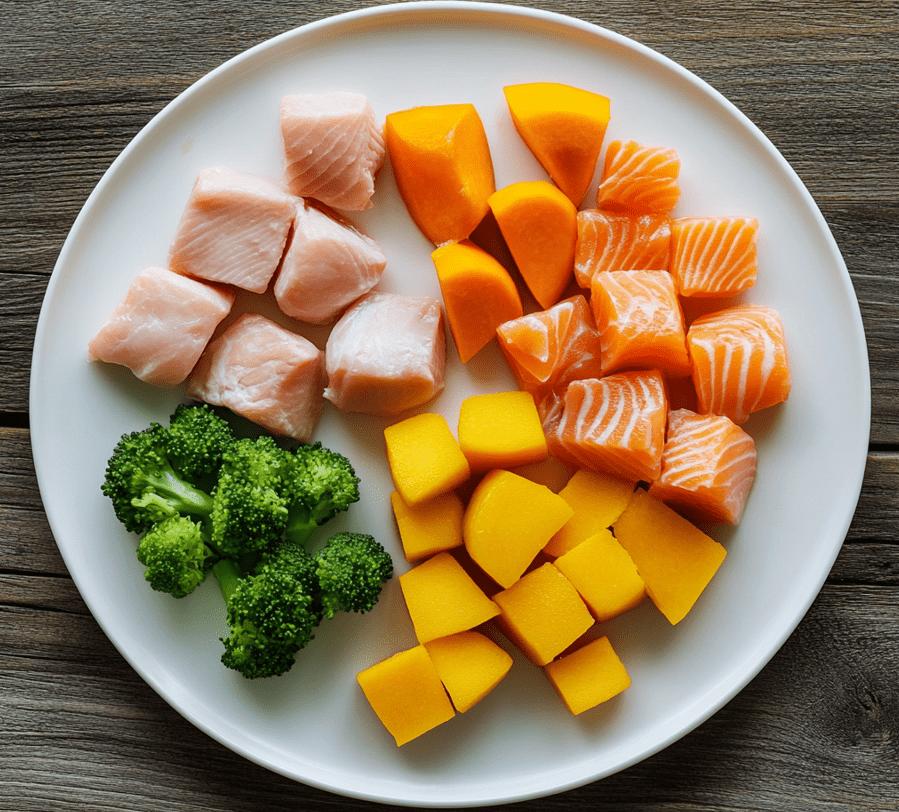
Insufficient dietary protein can block cats from synthesizing certain amino acids, including taurine and arginine. Isoleucine, valine, leucine deficiencies can cause serious health problems like
1.Retinal degeneration
2.Cardiomyopathy
3.Compromised immune function
4.Developmental abnormalities
Taurine and other essential nutrients are present in the food that these animals eat such as rodents, small prey etc. But, give a 100% raw diet to your house cat and it will seriously endanger its health. Bacteria and parasites can live on raw meat, putting people at risk of serious food-borne infections.
The best choice for house cats is a wet food regimen. Both wet food and soft-moist cat foods are designed to help mimic our cats natural nutrition while being free from harmful bacteria. Whereas dry food (kibble) is highly processed, wet food will be higher in moisture content and offer greater amounts of bioavailable proteins, vitamins and minerals. We thought it perfect for helping to keep your cat healthy generally.
Discover our delicious recipes and create your own menu for your cat!
After answering a few questions you can personalize your menu to reflect your pet’s tastes, food allergies and life stage.
With gravy or in jelly, there’s even an option for pickier eaters with a selection of chicken and fish. You know that Untamed is top of the line quality—because all our delicious, convenient products are made with premium cuts like these:
1.Chicken breast
2.Duck breast
3.Salmon fillet
4.Tuna steak
5.Sardine and mackerel fillet
6.Prawns
7.Shrimp
You may also like these popular recipes:
Chocka Chicken in Jelly: Human grade chicken, encased with a light jelly.
Fresh chicken breast with succulent duck in jelly: Chocka Chicken in Gravy — shredded chicken breast with thick natural gravy.
Tuck-in Tuna in Jelly: A tasty fish broth with dolphin-safe tuna steak
Tuck-in Tuna with Shrimp in Jelly: 100% fresh tuna & shrimp kept naturally moist by delicious gravy
* Cat-friendly single-protein recipes include Tuck-in-Tuna and Chocka-Chicken which are great for puss with delicate tummies.

